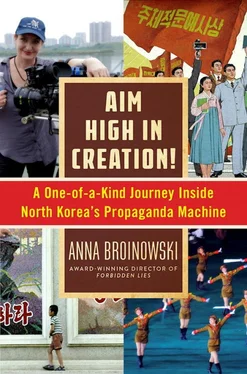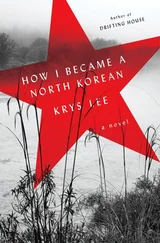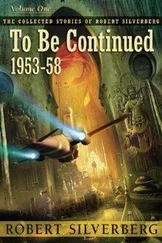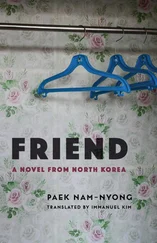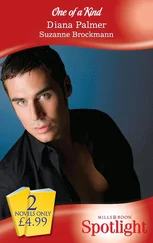It’s now 4 a.m., and we’re giggling like maniacs. It’s a propaganda- induced hysteria: the first phase religious cult members go through when being brainwashed to reject reality. Thankfully, we have an escape route—the eject button. In a few hours, we have to meet Ms. K’s boss. We need to be alert for the meeting, because he’s going to decide if he’ll let us back in. So we shelve our guilt and fast-forward the remaining films. We’re not missing anything by not watching them in real time—the subtitles are appalling. Besides, when an average North Korean propaganda film is sped up, it plays almost as fast as a Western one. I insert something called Pyongyang Nalpharam , praying for another comedy. But it’s better: a fantasy-action pic, starring a tae kwon do–fighting princess and her nemesis, a long-haired vixen who looks like an Asian Angelina Jolie. Quentin Tarantino would love this one—it’s the North Korean Kill Bill .
The plot’s too convoluted to work out. It has something to do with preserving the Korean martial art of tae kwon do, against a corrupt feudal lord who is trying to make judo the national sport. Suffice to say, the princess and the bad girl kick the living daylights out of each other in many picturesque settings. There are slow-mo punches to the head and lots of convincing gore. There’s also a wet T-shirt scene, in which the princess kills the bad girl in an icy mountain stream. Then—out of the blue—there’s a line-for-line rip-off from Spartacus . The lord’s soldiers ambush some monks in a paddock, looking for their ringleader. “Which one of you is Hyong Pil?” says the soldier’s captain. A monk steps forward. “I’m Hyong Pil,” he says. Then another joins him: “No, I am Hyong Pil.” Then a third: “No, I am Hyong Pil.” And so on. The camera zooms in to the real Hyong Pil, overcome with gratitude as he realises, like Kirk Douglas’s rebel slave Spartacus, that his noble brothers would rather sacrifice themselves than betray him to the oppressor. I have no idea what happens next; we’ve already hit eject.
We’re enjoying our propaganda crash course now—fast-forwarding the films like lunatics and expertly predicting the plots. My Happiness , the World War II drama scored by Mr. Pei, is a turgid buddy film about two nurses who befriend each other in the trenches and go on to live melancholy but comfortable postwar lives. There’s a lot of gazing into the Taedong River at dusk and rippling dissolves to various American war atrocities. The subtitles don’t work at all, but even at quadruple time, you know when the obligatory Dear Leader speech is being made: it is always done in one shot, with the actor gazing out a moonlit window, or staring at the Dear Leader’s portrait, or addressing his rapturous comrades. Pei’s song is the most engaging thing about My Happiness —that, and the novelty of watching a big-budget war movie that stars two women.
We whizz through three more war movies, full of explosive battle scenes. Wolmi Island is spectacular. One sequence shows an army cook standing on a raft in the middle of the boiling sea, dodging real torpedoes fired by three massive frigates. Another shows the sixteen-year-old Ms. Yun singing to North Korean soldiers in a bunker as they prepare to sacrifice themselves to the Yankee wolves. The scene is gorgeously lit and moving. When the captain puts on a record to accompany Ms. Yun’s dazzling voice, it’s like watching the end of Gallipoli , when the brigadier plays Albinoni’s “Adagio in G Minor,” just before young Archy runs over the trenches and is killed. Ms. Yun sprints through exploding bombs to save the hero, only to discover he is already dead. You want to cry with her. “Tongji!” she says. “Comrade! Wake up!” But it’s too late. Ms. Yun is shot through the heart—another casualty of the imperialist warmongers.
After Ms. Yun dies, a North Korean actor in a ragged red wig appears, attempting—and failing—to portray an American soldier. His exaggerated scowls and bad makeup turn what has until now been a riveting drama into a sketch from the British World War II comedy ’Allo ’Allo! Bleeding to death on Wolmi Island’s rocky cliff top, the Yankee writes a letter to General MacArthur. A clipped North Korean voice reads out his words, underscored by surging music. I swear it is the same voice that called me in Sydney. “The Korean people are the toughest people I’ve ever met,” it says, in its coolly detached tone. “We cannot win against them. They will defeat us.” The soldier then dies a slow and appropriately horrible death.
By the time we slide in DVD twenty-two, we’re beyond tired. The endless speeches and relentlessly happy peasants have turned our critical faculties to mush. All we can do is insert, fast-forward, laugh, and eject. “Oh look,” I say, “another group song.”
“Ah,” says Lizzette, “there’s red-wig guy again. He still can’t act.” And every time someone places their hand on their heart and looks to the heavens to deliver the Dear-Leader-is-the-love-of-my-life speech, we heckle them mercilessly: “The Dear Leader saved me! The Dear Leader never sleeps! The Dear Leader is a big fat Hennessy-gobbling tosser, but when I have nothing to eat, I just have to sing about him!”
The laughter is a release, like therapy. It’s keeping us sane. On the screen, Yurim stands in the International Friendship Exhibition, gazing at a glass-encased boar’s head as if it’s the Holy Grail. And I’m on the floor now, rolling around, in stitches: “Reckon that’s a gift from Idi Amin, or Pol Pot?” “Nah—that’s from Putin. Shot it himself. Hope Kim sent back some cold noodle soup!”
The phone rings.
I look at Lizzette. I didn’t think the room had a phone. It keeps going—a low, insistent growl. I scrabble around until I find it, wedged between an ashtray and the curtain. It’s Ms. K. She sounds annoyed. “Anna,” she says. “Please watch the films.” Ms. K hangs up—from Floor Five.
Oh, shit .
IF MS. K KNOWS WHAT WE did last night, she’s not saying. We’re walking out of the hotel, past the casino building site. The hedges are divided every ten metres by stone plinths, carved with slogans. “What does that one say?” I ask Ms. K, working hard to be a dutiful, Kim-loving guest. She stops and translates each time, as if it’s her civic duty: “Let us love our machines like the anti-Japanese guerrilla fighters loved their weapons!” she says. “Let us dedicate our love to the road our Dear General has taken! ” We move on. After five minutes of being told to “aim high in creation!” and “contribute through our arts to bring a faster victory!” we arrive at our destination.
The performing arts centre looks like a huge and particularly expensive shipping container. In this iron-clad fortress, Johannes Schönherr and the other foreign guests of the Pyongyang International Film Festival spent most of their time. It was considerate of the architects to build it within walking distance of the hotel, I decide. Or totally paranoid. Did they want to make the foreign guests comfortable, or did they want to keep them all on the island, away from the real Pyongyang? After last night’s phone call with Ms. K, I still have no idea what’s more likely. I decide to be Buddhist about it and accept both options.
We step inside the largest foyer we’ve seen so far—which is considerable, given most of Pyongyang’s public buildings appear to have been built for giants. The absence of electric light transforms the space into a massive cave. It’s so gloomy and vast, you can’t see where the floor ends. A magnificent marble staircase curves down three balconies into a grand hall. A chandelier the size of a Sherman tank floats above a grand piano. There are towering mosaics of Kim Il Sung everywhere, looking robust in various bird-filled settings. And every surface is coated in a fine veil of dust. Perhaps the place lies dormant for two years, until the next festival’s foreign guests arrive. But I’m not asking Ms. K about it. We have twenty-two hours left in North Korea, and they may be our last.
Читать дальше
